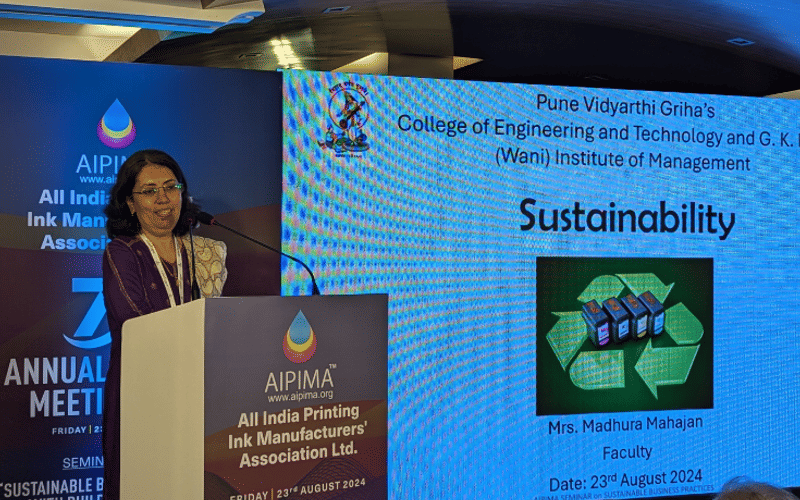Madhura Mahajan on techno-ecological synergy at AIPIMA AGM
At the 71st annual general meeting of the All India Printing Ink Manufacturers Association (AIPIMA), held on 23 August 2024 at Mirage Hotel in Mumbai, Madhura Mahajan spoke about the urgent need for businesses to integrate sustainability into their operations. She discussed global challenges such as carbon emissions, urbanisation, and climate change, pointing out how these issues are deeply interconnected and require solutions that draw on multiple disciplines.
02 Sep 2024 | By Anushka Chourasia
Madhura Mahajan, dean of PVG’s College of Engineering and Technology, Pune, presented data showing the steady increase in global CO2 emissions from 1940 to 2023, underscoring the necessity for immediate and collective efforts to combat climate change. She referenced the United Nations' Sustainable Development Goals (SDGs), explaining how they provide a framework for businesses to align their strategies with global sustainability objectives.
A significant portion of her presentation was focused on the concept of Techno-Ecological Synergy (TES), which integrates technological efficiency with the preservation of ecosystems. Mahajan explained that TES can be applied at various levels, from individual processes to entire life cycles, to reduce environmental impact while enhancing ecosystem resilience. "Putting this framework into action needs teamwork across areas like engineering, ecology, and policy-making," she said, calling for strategies that bridge technology with environmental care.
Mahajan also addressed the challenge of accurately assessing the demand and supply of ecosystem services. According to her, many existing methods account for the demand but often overlook the supply, highlighting the need for more integrated approaches that fully recognise the role of ecosystems in supporting human activities.
In conclusion, Mahajan encouraged businesses to conduct thorough assessments of their environmental impact, covering areas such as energy use, water consumption, and waste management. She added, "Understanding and mitigating your carbon footprint is not just a responsibility—it’s an opportunity to contribute to global climate goals.”












 See All
See All